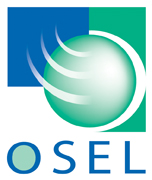Hayashi A, Sato T, Kamada N, Mikami Y, Matsuoka K, Hisamatsu T, Hibi T, Roers A, Yagita H, Ohteki T, Yoshimura A, Kanai T. Cell Host Microbe. 2013 Jun 12;13(6):711-22. doi: 10.1016/j.chom.2013.05.013.
Synopsis: Imbalance in gut bacterial composition provokes host proinflammatory responses causing diseases such as colitis. Colonization with a mixture of Clostridium species from clusters IV and XIVa was shown to suppress colitis through the induction of IL-10-producing regulatory T (Treg) cells. In this paper it was demonstrated that a distinct Clostridium strain from cluster I, Clostridium butyricum Miyairi 588 (CBM 588), prevented acute experimental colitis in mice through induction of IL-10, an anti-inflammatory cytokine. However, while CBm588 treatment had no effect on IL-10 production by T cells, IL-10-producing F4/80(+)CD11b(+)CD11c(int) macrophages accumulated in the inflamed mucosa after CBM588 treatment. CBM 588 directly triggered IL-10 production by intestinal macrophages in inflamed mucosa via the TLR2/MyD88 pathway. The colitis-preventing effect of CB was negated in macrophage-specific IL-10-deficient mice, suggesting that induction of IL-10 by intestinal macrophages is crucial for the probiotic action of CBM 588. Collectively, CBM588 promotes IL-10 production by intestinal macrophages in inflamed mucosa, thereby preventing experimental colitis in mice.
